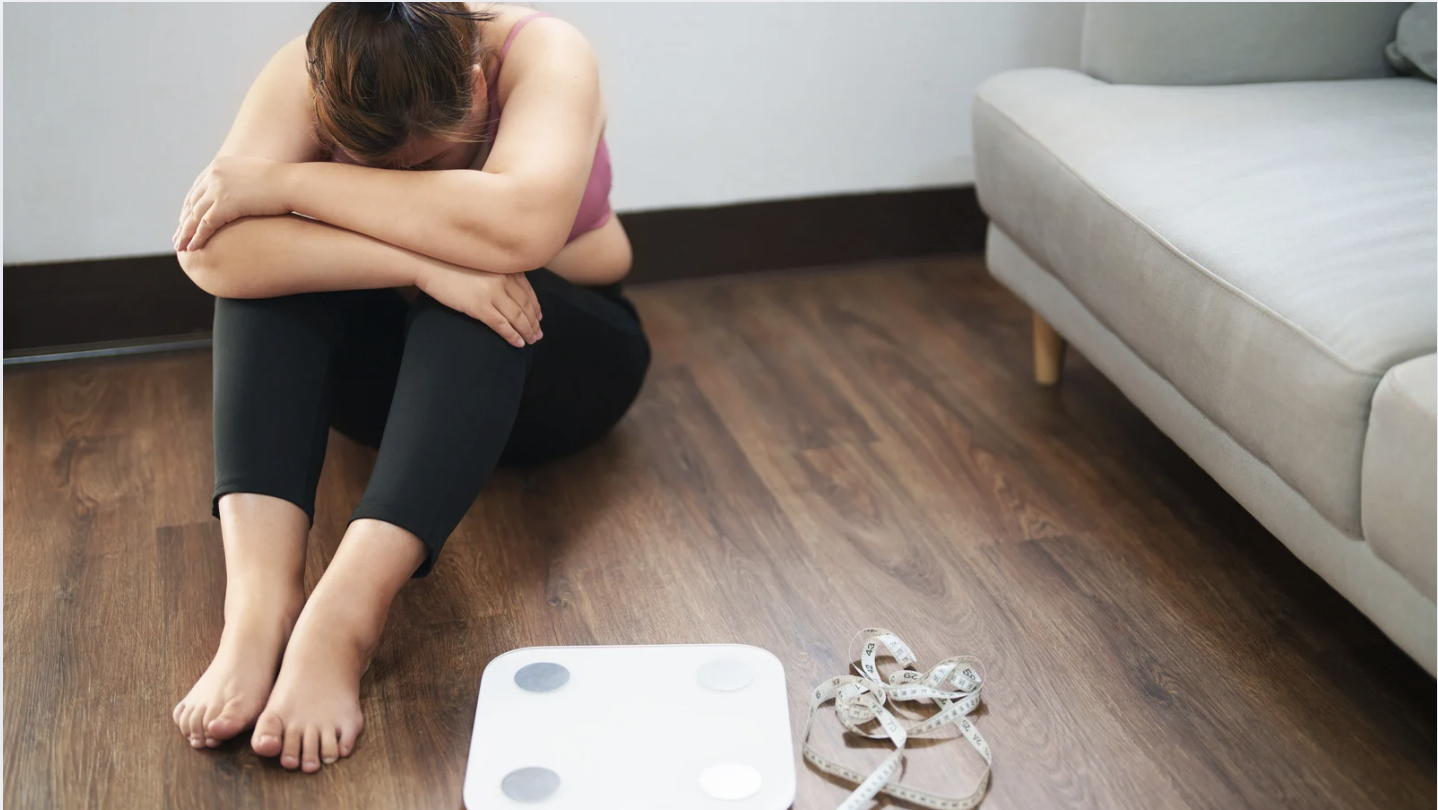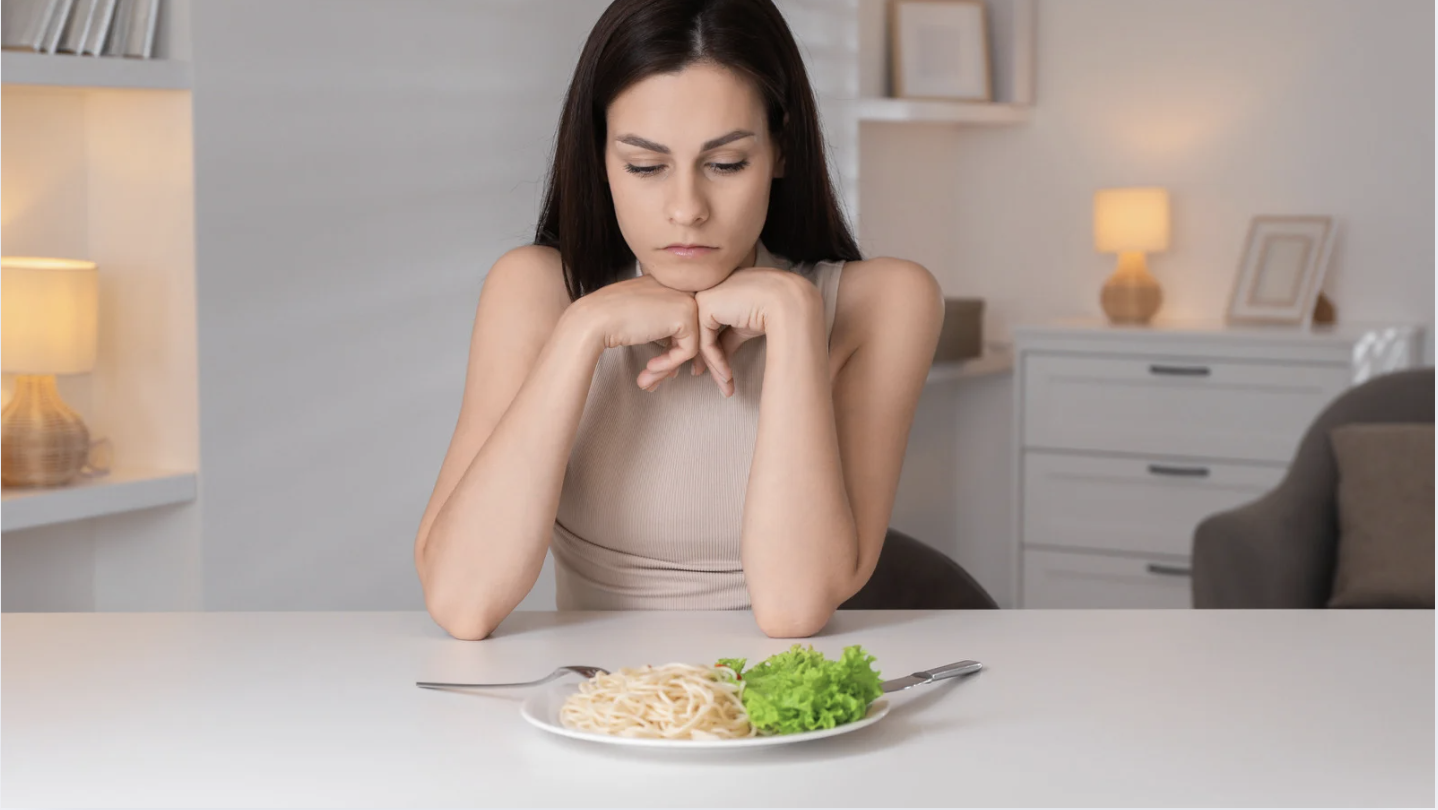Sweet, Nice, and Stuck: How People-Pleasing Costs You Your Health and Weight
Tired of Starting Over & Over Again? Here’s Why You Lose Motivation — And How to Fix It
Stop Rewarding Yourself Like a Child: Upgrade Your Rewards as a Grown Woman
Why Weight Loss Feels Impossible for Many Women: The Hidden Trauma No One Talks About
How Do I Know If My Body Is in Starvation Mode?
Why Are My Clothes Fitting Better but the Scale Isn’t Moving?
Losing the Weight Is Not Hard, But Keeping It Off for Good? That’s Another Story

Why the Scale Might Be the Biggest Dream Killer in Your Weight Loss Journey
Do you weigh yourself every day — or regularly — like most weight loss gurus tell you to, “so you can track your progress?”
Let me ask you this: How’s that helping you so far?
If you’re like most women, the answer is: It’s not.
In fact, it’s probably doing more harm than good.
Let’s talk about something that ruins more weight loss dreams than cupcakes ever could:
👉 The number on the scale.
I call it the “Rain on Your Own Parade” Dilemma. It’s worse enough that someone else rain on your parade, but you rain on your own parade?!
You know the feeling...

How the All-or-Nothing Perfectionist Mindset Keeps You Stuck (and What to Do Instead)
Picture this: you start the week strong — green smoothies, morning workouts, zero sugar. Then Wednesday hits. You grab a cookie at work, and instantly your brain screams, “Well, I already messed up. Might as well start over Monday.”
And just like that, one cookie turns into a weekend binge, followed by guilt, frustration, and another “fresh start” that never quite sticks.
This is the all-or-nothing mindset — and it’s quietly one of the biggest reasons women struggle to lose weight and keep it off.

How to Eat Healthy When You Have No Time & No Energy to Shop for Grocery & Cook?
You’re the kind of woman who gets things done. Meetings back-to-back, inbox overflowing, and deadlines chasing you before you’ve even had your second cup of coffee. You power through the day like a pro—but when evening hits, exhaustion settles in and you realize… you’ve barely eaten. Your brain is fried, your willpower is gone, and the little voice in your head whispers, “You deserve a treat.”
And so begins the nightly ritual—ordering takeout, snacking on whatever’s easy, or collapsing on the couch with comfort food because you’ve earned it. Sound familiar? You’re not alone. High-achieving women often run on adrenaline all day, then crash and reach for “whatever sounds good” once the laptop closes. The problem is, those choices often leave you feeling bloated, guilty, and stuck in the same cycle.

15 Signs of a Poor Relationship with Food That Society Told You Was Normal (But It’s Not)
If you’ve ever felt guilty after eating, skipped meals to “earn” your dinner, or obsessed over every calorie — you’re not alone.
These behaviors are so normalized by diet culture that most women think they’re just part of “being healthy.”
But here’s the truth:
Just because it’s common doesn’t mean it’s normal.
And it definitely doesn’t mean it’s healthy.
Below are 15 subtle but powerful signs of a poor relationship with food that society taught us to accept — but that may actually be keeping you stuck in pain, shame, and constant struggle.
Food Guilt: Why Eating a Cookie Feels Like Failure (And What It Says About You)

How to Stop Emotional Eating When You’re a Busy, High-Achieving Woman
You wake up early, power through back-to-back meetings, answer emails between sips of lukewarm coffee, and grab whatever’s quickest between calls—if you even have time to eat at all. By the time you finally close your laptop, you’re mentally drained, physically exhausted, and ready to collapse on the couch with your favorite comfort food.
Sound familiar? You’re not alone.
For many high-achieving women, emotional eating isn’t about lack of willpower—it’s a side effect of a demanding lifestyle that leaves little room for nourishment, rest, or balance.

How to Lose Belly Fat for Good: The Real Secret Most Women Are Missing
You’ve tried everything — fasting, counting calories, cutting carbs, even back-to-back HIIT classes. Maybe the scale moved a little, but the belly fat stayed. It’s discouraging, especially when you’re doing everything “right.”
If you’re a professional woman in your 30s, 40s, or 50s, juggling career demands, family responsibilities, and a million daily stressors, the truth is this: the real reason you can’t lose belly fat has little to do with discipline — and everything to do with stress and digestion.

Damage Control During This Holiday Season: Indulge Without Overeating

Why You Can’t Stay on Your Diet or Exercise Routine (It’s Not What You Think)

12 Self-Sabotaging Behaviors That Quietly Undermine Your Weight Loss That No One Talks About
If you’ve ever felt like you were doing everything right—eating better, moving more, staying committed—only to find yourself backsliding again, you’re not alone.
Weight loss isn’t just about willpower. It’s about patterns, beliefs, and emotional needs—and sometimes, the biggest obstacles aren’t what we eat but why we eat, or how we unconsciously sabotage our progress.
After working with thousands of women struggling with weight loss, I discovered the most common self-sabotaging habits that quietly—but powerfully—lead to weight loss failure. These patterns are often overlooked, yet they play a major role in why women feel stuck, frustrated, and defeated despite their best efforts.
The good news? Once you identify these hidden behaviors, you can break free from the cycle—for good.

How to Stop Overeating for Good Easily & Effortlessly?
Sarah sat on her couch staring at the empty chip bag beside her. She hadn’t planned to eat the whole thing—she only wanted “a few.” But somehow, just like so many nights before, she ended up eating until she felt stuffed, guilty, and frustrated.
“Why can’t I control myself?” she whispered, almost angry at her own reflection later that night.
If you’ve ever felt like Sarah, you’re not alone. Many women secretly battle with overeating. They promise themselves this time will be different—that they’ll use more willpower, cut out carbs, or be “good” tomorrow. But eventually, the cycle repeats itself.
And here’s the truth: it’s not because you’re weak. It’s not because you don’t care. And it’s certainly not because you’re broken.

Are You Struggling to Lose Weight Despite Intense Workouts?
You’ve tried everything—HIIT classes at 5 am, spin sessions after work, weekend bootcamps, and endless hours at the gym. You push yourself harder and harder, yet the scale doesn’t budge. If anything, you feel more exhausted, more frustrated, and more stuck.
This is the struggle so many professional women face: doing “all the right things,” but still not seeing the results. And the truth is, intense workouts may actually be sabotaging your weight loss efforts.

Why do You Not Eat All Day & Binge on Sugar & Junk at Night?
Have you ever told yourself, “If I just don’t eat all day, I’ll save calories and lose weight faster”? Maybe you skip breakfast, push through lunch, and pride yourself on your “discipline.” But by the time nighttime hits, it’s like a switch flips—you’re ravenous, and suddenly nothing in the kitchen is safe.
You start with one snack, then another, and before you know it, you’ve eaten way past the point of fullness. Guilt sets in, and you swear tomorrow will be different.
But tomorrow looks just the same.
So why does fasting during the day backfire into nighttime binging?